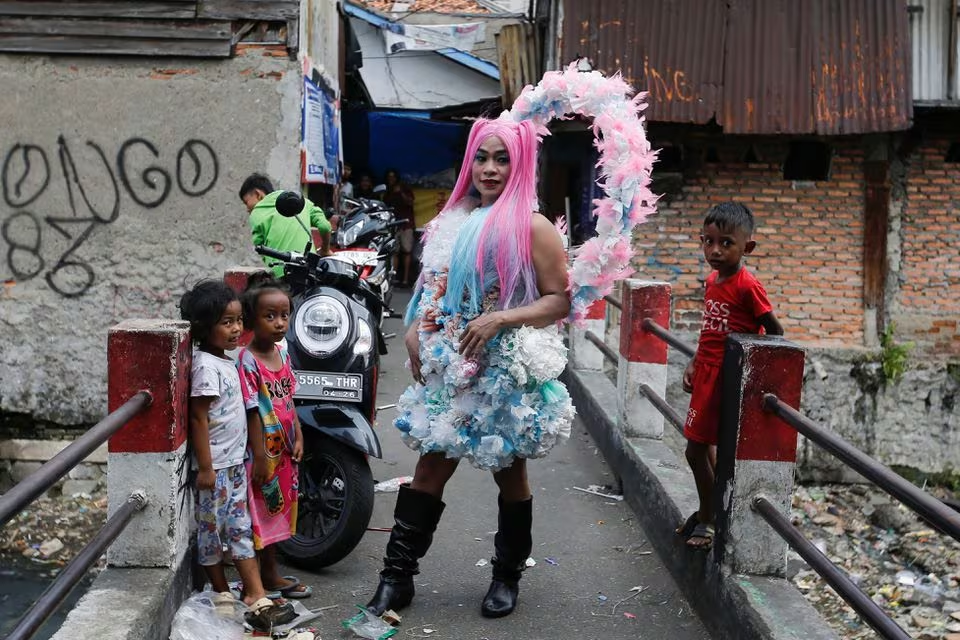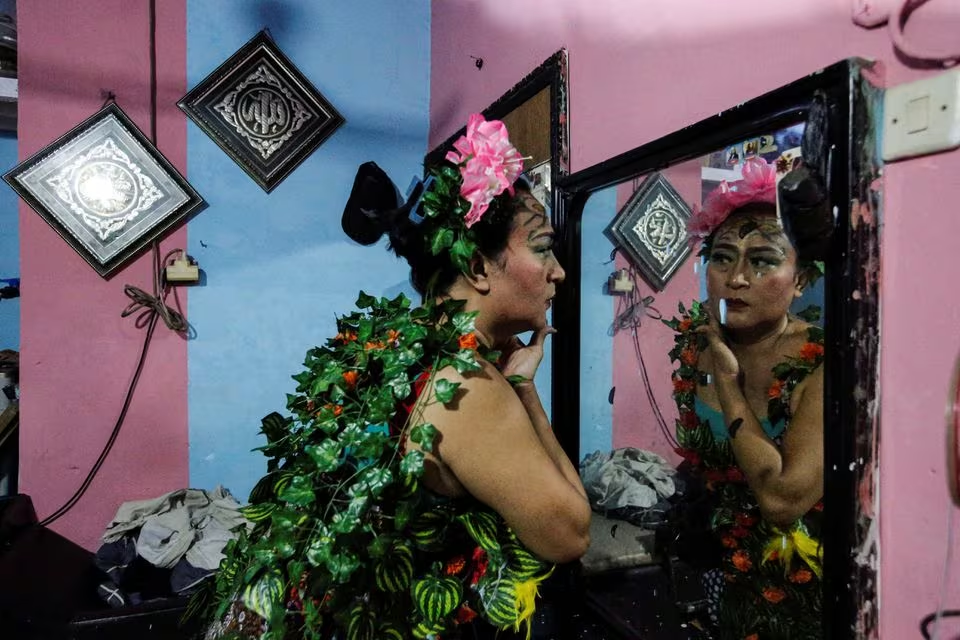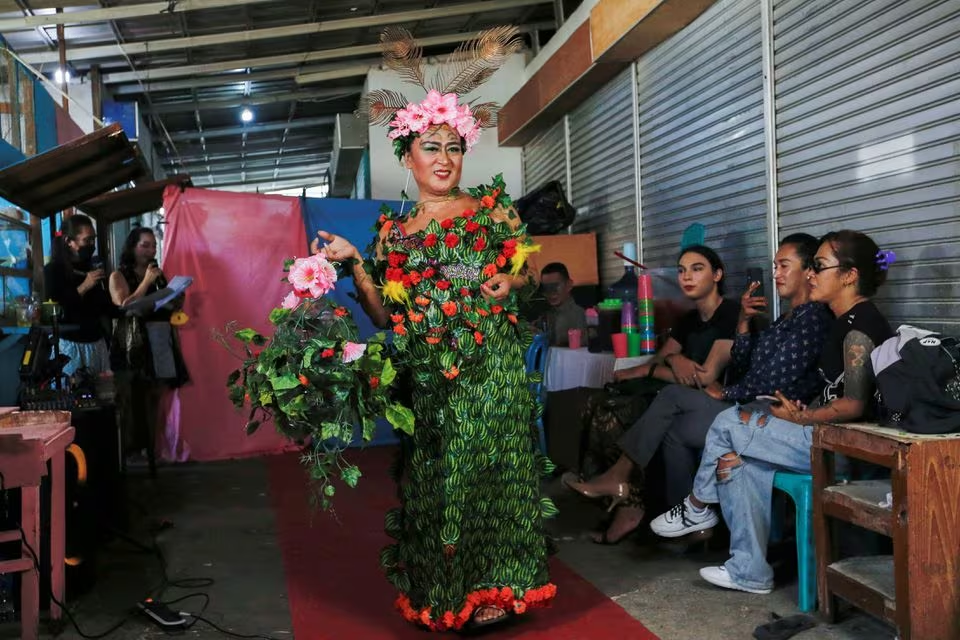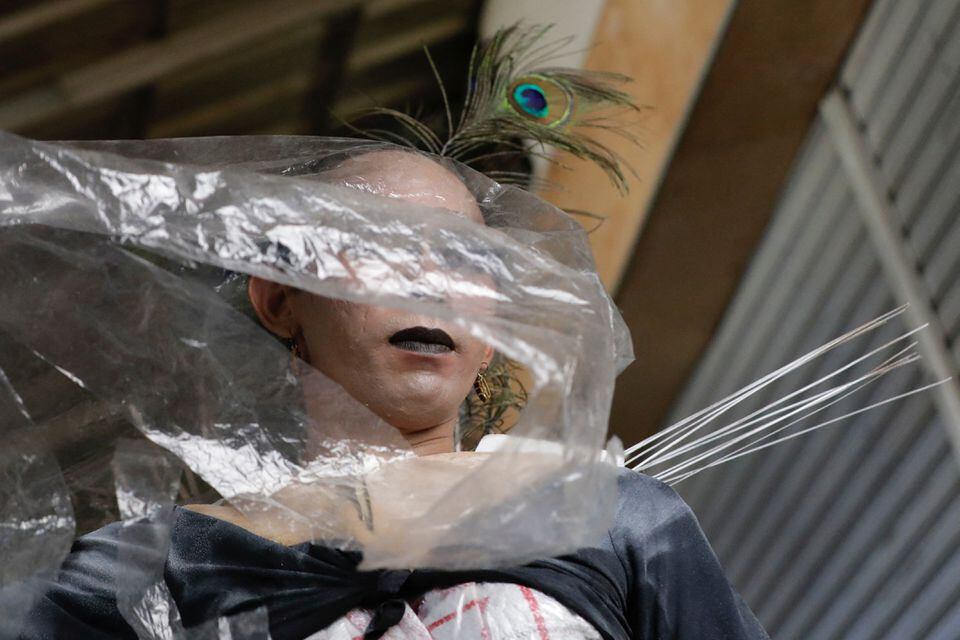Jakarta's Transgender Fashion Rebels

In Jakarta's dense slums, a group of Indonesian transgender models is redefining activism through fashion. Led by Mama Atha of Sanggar Seroja, these models - dubbed the "Trans Super Heroes" - are turning heads with their vibrant dresses crafted from recycled plastic. More than a fashion statement, these outfits are a bold commentary on pollution and a beacon of hope in a society where their existence is a silent rebelion. Needless to say, I'm inspired.
The the transgender community of Duri, fashion icons dazzle the onlookers, not with haute couture, but with outfits meticulously crafted from plastic cutlery, bottles, and other recycled materials. And when I say meticulously I really mean it, just look at pictures.

Amidst the chaos of Jakarta's pollution, these models transform waste into wonder, using plastic cutlery and bottles to create eye-catching ensembles. Each step on their makeshift catwalk challenges social norms and environmental negligence. This isn't just a fashion show; it's a powerful protest against the environmental crisis and the marginalization of the transgender community.

This unique blend of fashion and activism serves a dual purpose. It not only shines a spotlight on the environmental issues in Jakarta but also humanizes a community often marginalized and misunderstood. It's a powerful reminder that beauty, creativity, and change can emerge from the most unexpected sources.

As Indonesia grapples with impending changes to its criminal code1, the future for the LGBT and queer community remains uncertain. Yet, amidst these looming shadows, the spirit of the "Trans Super Heroes" stands undiminished, their message clear: amidst adversity, there is hope; in pollution, there is potential for art; and in the heart of the transgender community, there lies unyielding courage and a relentless pursuit of a better, more inclusive world.
Get more Fashion inspo here.
1 The impending changes to Indonesia's criminal code, particularly those criminalizing consensual sex outside of marriage and cohabitation between unrelated persons, could significantly impact the transgender community. Since same-sex marriage is not recognized in Indonesia, these provisions essentially render same-sex relationships and, by extension, many transgender relationships, illegal. This creates a precarious situation for the transgender community, who already face social stigmas and legal challenges.
